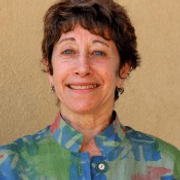Ellen Widess
“One of the provisions they (the Trump-era EPA) wanted to get rid of was the farmworkers’ right to have their doctors, or any other advocate, a lawyer, priest, worker center, anybody, union, get access to their pesticide safety sheets to know what they were exposed to, what the risks were and to be able to go after the company and get proper medical treatment and diagnosis. The industry was saying, ‘We don’t need it.’ I got this precise section of Texas law which dated back to Hightower’s administration to that very, very hard-fought law, and I said, ‘You won’t believe it but Texas, deep red, has the exact language we’re fighting for. If Texas could have this law, then everybody should.”’ Tom Udall said, ‘I’ll take that,’ and he went to the chemical industry, and he said, ‘See, Texas is living with it, and it hasn’t ended agriculture in Texas.”
Ellen Widess served as head of Pesticide Enforcement for the Texas Department of Agriculture. She implemented the newly-passed Right-to-Know law and oversaw the development of Crop Sheets, so that people would know if they were in West Texas or in the Rio Grande Valley, etc., this is the crop you’re working with, and these are the likely pesticides used in order of their toxicity. They were designed to be useful for the farm workers and their advocates, but also for doctors treating them, for environmental groups to know what was being used in the area and for family farmers, whose own kids, and family members were applying pesticides. She enlisted support from Hightower to build a whole Right-to-Know program and then recruited top environmental students from around the country to do trainings of farmers, farm workers, and advocates on the new Right-to-Know law. Ellen went on to work for the Rosenberg Foundation and serves on the board of Farmworker Justice.
